International Rivers provides technical expertise and campaigning support to a wide range of partner groups from civil society to community based organizations. With these tools, we aim to help our networks understand the global trends in hydropower and financing sectors, and monitor and campaign on projects that affect the world’s major rivers and ecosystems. We believe that well-resourced, active networks are necessary to demonstrate our collective power and create the change we seek.
More Capacity Building Tools can be found on The River Resource Hub.
Gender | Safeguards & Standards | Rights of Affected Peoples | Climate
Gender
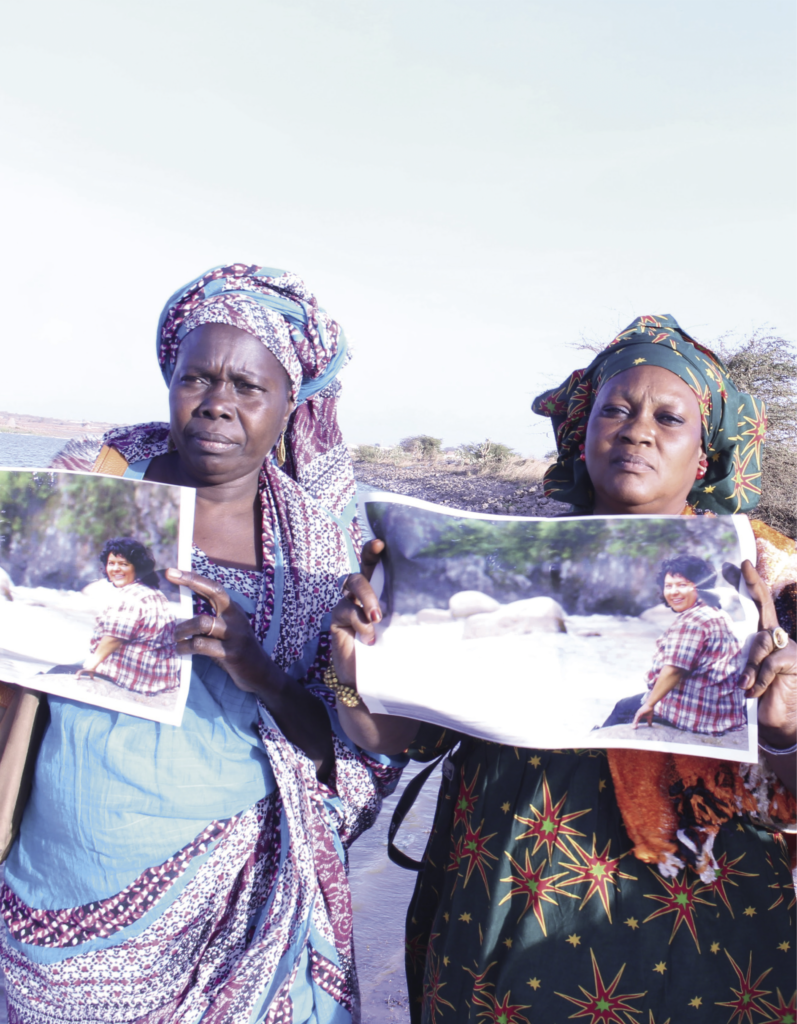
Transforming Power: a gender guide for organizations campaigning on dams and for rivers (2020)
This guide was designed as a practical guide for non-gender experts as a means to assess and improve our work. Asking: How can we better include gender into our work? And how can this contribute to advancing women’s interests and rights, alongside those of men, in the context of dam development?
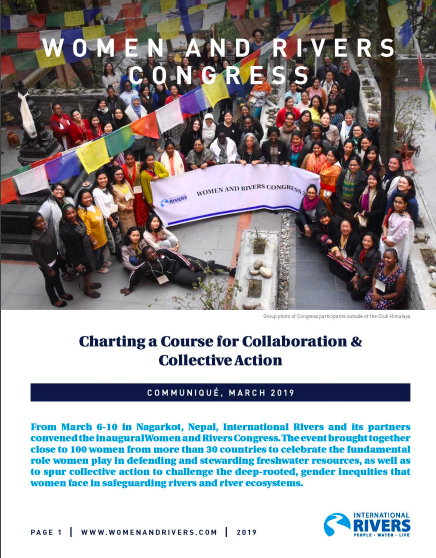
Communique: Woman and Rivers Congress
The inaugural Women and Rivers Congress this March in Nagarkot, Nepal was a tremendous success, bringing together close to 100 women from more than 30 countries to celebrate the fundamental role women play in defending and stewarding freshwater resources, as well as to spur collective action to challenge the deep-rooted, gender inequities that women face in safeguarding rivers and river ecosystems.
This is the summary of what transpired and the collective action this inspiring group of women leaders resolved to carry out.
Safeguards and Standards
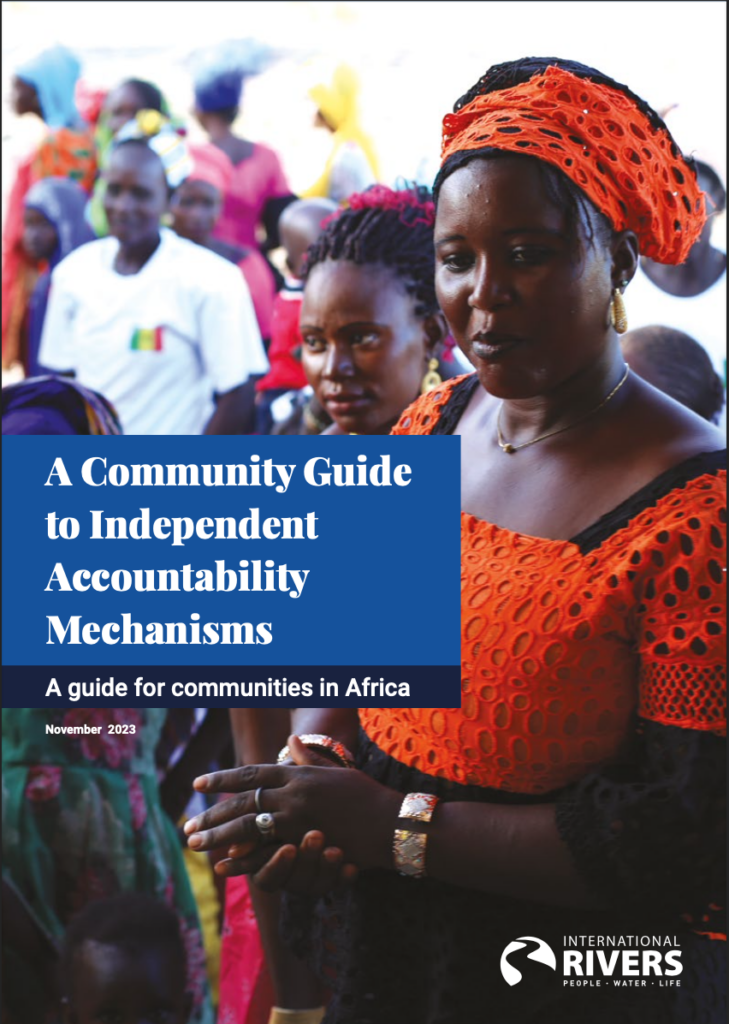
A Community Guide to Independent Accountability Mechanisms
Alongside community education on the impacts of big hydropower, the importance of FPIC and an independent ESIA, energy access and sustainable energy alternatives, it is important for communities to be informed about a recourse that is available to them in the form of IAMs.
This Community Guide to Independent Accountability Mechanisms is a tool that communities threatened by dam construction in Africa, can use to hold international banks or companies accountable for harm they have caused. It provides easy to understand information that will enable communities to decide on whether or not an IAM is a recourse they wish to pursue.
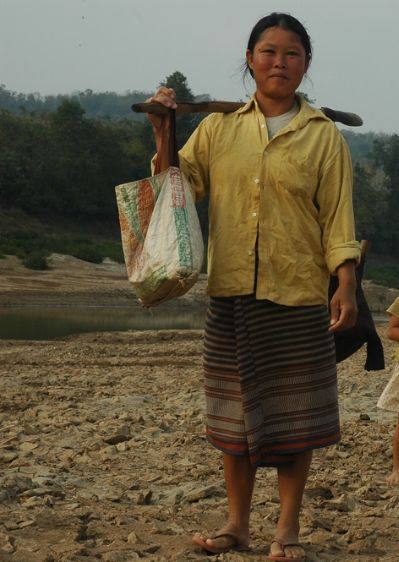
Activist Guides to Sinohydro’s Environment and Social Policies
It is important that users of this guide work out whether Sinohydro is the project developer or construction company engaged by the project developer. If Sinohydro is developing the project, then the company will have environmental and social policy responsibilities through the lifecycle of the project. They are discussed further here. If Sinohydro is acting as a contractor, either as an EPC Contractor or has a construction contract, the following responsibilities contained in this guide may apply.
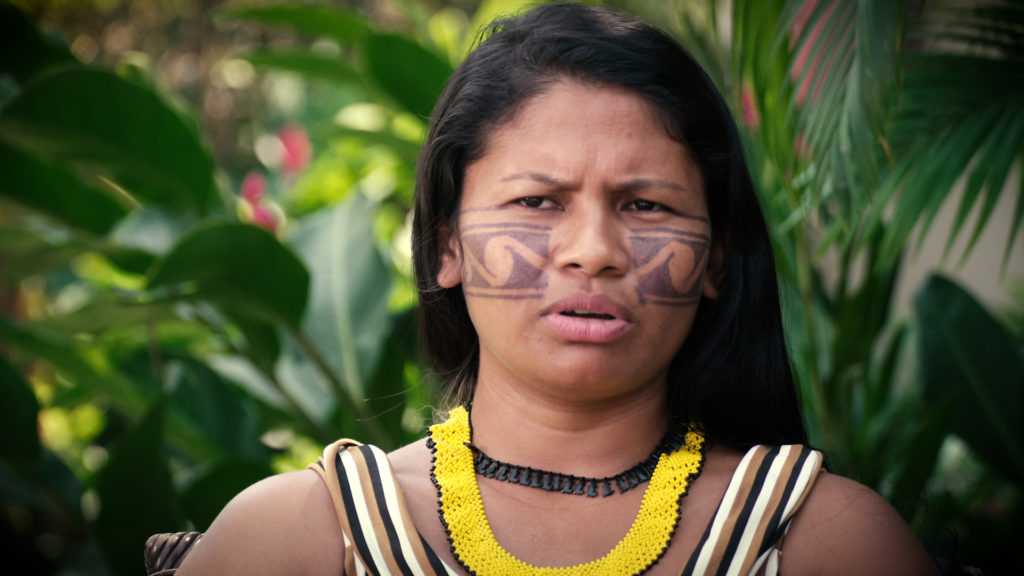
Free, Prior and Informed Consultation and Consent Protocols Video
The video “Consultation Protocols: Instrument for the Defense of Territories and Rights”, directed by Todd Southgate and produced by Brent Millikan, brings experiences and voices from people involved in the elaboration and implementation of Consultation Protocols, including technicians and members of communities who they use them as an instrument in the fight to defend their rights. This video aims to share information and support capacity building workshops on the topic.
Rights of Affected People
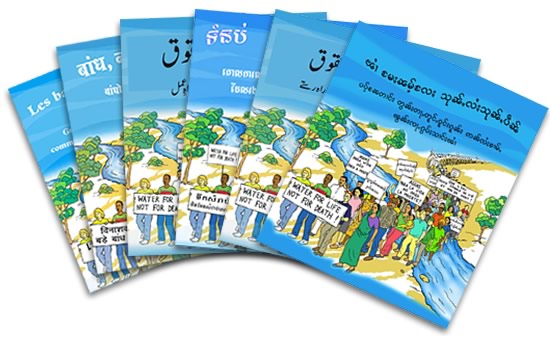
Dams, Rivers and Rights: An Action Guide for Communities Affected by Dams (2007)
Dams, Rivers and Rights is the perfect tool for anyone threatened by dam construction. It tells the stories of people affected by dams and outlines success stories of people who fight for their rights and their rivers. The guide shares lessons and ideas from the growing international movement against destructive dams. It tells stories of people all over the world who say no to dams and who demand “Don’t DAMage our lives.“ Now available in 19 languages.
Resettlement Guide for People Affected by Dam Development
This video guide was designed for use among communities and local groups that are affected by dam development. It explains the rights of affected communities, and how to use existing mechanisms to obtain fair compensation and assert their rights in the resettlement process.
Climate
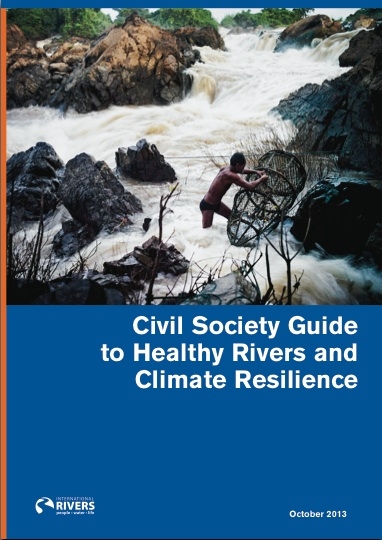
Civil Society Guide to Healthy Rivers and Climate Resilience (2013)
Using case studies and examples from around the world, the guide answers questions that help assess, address, and adapt to a world of increasing climate. Also included are key questions to ask decision-makers when evaluating a dam project’s potential climate risks.
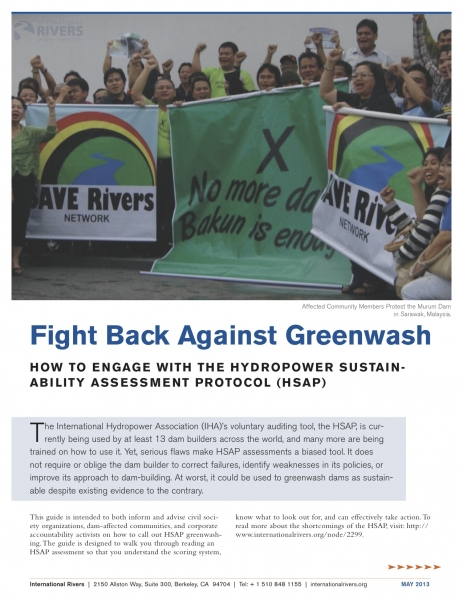
Fight Back Against Greenwash: A Guide on How to Engage with the Hydropower Sustainability Assessment Protocol (HSAP) (2013)
The guide teaches citizens, civil society organizations, dam-affected communities, and corporate accountability activists how to understand HSAP assessments and hold dam builders accountable for greenwash.
